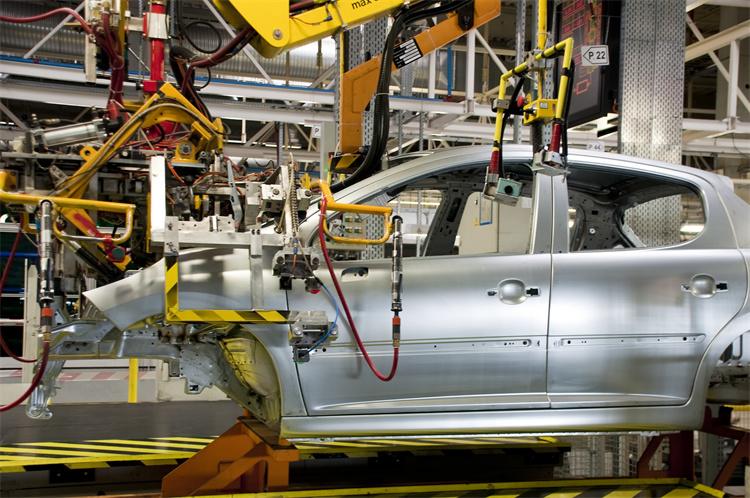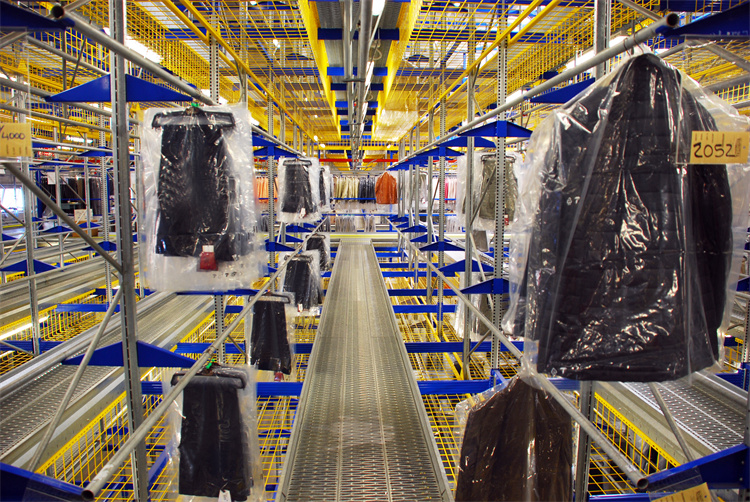Navigating Automotive Supply Chain Disruptions

Supply chain disruptions have become a significant challenge in the automotive supply chain industry. Manufacturers face delays and increased costs due to these interruptions in the automotive supply chain. Understanding these disruptions is crucial for maintaining production efficiency in the automotive supply chain. The COVID-19 pandemic highlighted vulnerabilities, causing lead times for semiconductors in the automotive supply chain to spike to 150 days. Car manufacturers in the automotive supply chain lost production for an estimated 7.7 million vehicles in 2021. Addressing these issues in the automotive supply chain is essential in today's global context, where supply chain stability directly impacts market competitiveness and consumer trust in the automotive supply chain.
Understanding Automotive Supply Chain Disruptions

Causes of Disruptions in the Automotive Supply Chain
Global Events (e.g., pandemics, geopolitical tensions)
Global events like pandemics and geopolitical tensions can wreak havoc on the automotive supply chain. The COVID-19 pandemic caused a slowdown in production and reduced the number of vehicles available for purchase. Trade tensions between the United States and China have led to increased tariffs, further complicating the supply chain. Natural disasters also play a role. For instance, the 2011 earthquake and tsunami in Japan disrupted the supply of key components like red paint pigment and LCD screens for vehicle info displays.
Technological Failures
Technological failures can disrupt the automotive supply chain significantly. Issues with software or hardware can halt production lines, causing delays and increasing costs. The global microchip shortage serves as a prime example. This shortage has sent shockwaves through the industry, delaying the delivery of critical components and leading to price peaks due to high demand and low supply.
Natural Disasters
Natural disasters have historically impacted the automotive supply chain. Earthquakes, floods, and other natural calamities can disrupt the flow of materials and components. The floods in Thailand in 2011 caused a shortage of LCD screens, affecting vehicle info displays. These events highlight the fragility of the automotive supply chain and the need for robust risk management strategies.
Immediate Impacts on the Automotive Supply Chain
Production Delays
Production delays are one of the most immediate impacts of disruptions in the automotive supply chain. When critical components are delayed, manufacturing processes come to a halt. Automakers like Tesla and Volvo have suspended production at some facilities due to component shortages. These delays can lead to a backlog of orders and frustrated customers.
Increased Costs
Increased costs are another immediate impact. Disruptions often lead to higher prices for raw materials and components. The increased tariffs resulting from trade tensions between the United States and China have added to these costs. Manufacturers must then decide whether to absorb these costs or pass them on to consumers, affecting market competitiveness.
Quality Control Issues
Quality control issues can arise when manufacturers rush to meet deadlines despite supply chain disruptions. The pressure to deliver products on time can lead to compromised quality. This can result in recalls and damage to the brand's reputation, further affecting consumer trust.
Long-term Consequences for the Automotive Supply Chain
Supplier Relationships
Long-term consequences include strained supplier relationships. Frequent disruptions can erode trust between automakers and their suppliers. Strong supplier relationships are crucial for maintaining a stable supply chain. Companies must invest in communication and collaboration to strengthen these ties.
Market Competitiveness
Market competitiveness can suffer due to ongoing disruptions. Companies that cannot manage their supply chains effectively may lose their competitive edge. Diversifying suppliers and investing in technology can help mitigate these risks and maintain market position.
Consumer Trust
Consumer trust is another long-term consequence. Frequent disruptions and quality control issues can erode consumer confidence. Maintaining a reliable supply chain is essential for building and retaining consumer trust. Proactive risk management and continuous improvement can help achieve this goal.
Strategies to Mitigate Automotive Supply Chain Disruptions

Automotive companies need effective strategies to navigate supply chain disruptions. These strategies can help maintain production efficiency and market competitiveness.
Diversifying Supply Sources
Local vs. Global Suppliers
Automotive manufacturers can benefit from diversifying supply sources. Local suppliers offer shorter lead times and reduced transportation costs. Global suppliers provide access to a broader range of materials and components. Balancing local and global suppliers can enhance supply chain resilience.
Multi-sourcing Strategies
Multi-sourcing involves using multiple suppliers for the same component. This strategy reduces dependency on a single supplier. If one supplier faces disruptions, others can fill the gap. Multi-sourcing ensures a steady flow of materials and components. This approach minimizes risks associated with supply chain disruptions.
Investing in Technology
Supply Chain Management Software
Investing in supply chain management software can streamline operations. Advanced software solutions like Nostradamus offer real-time visibility into supply chain activities. These tools help monitor key supply chain nodes and predict potential disruptions. Automakers can respond quickly to issues, maintaining smooth production lines.
Predictive Analytics
Predictive analytics uses data to forecast future supply chain trends. This technology helps identify potential risks before they become problems. Automakers can make informed decisions based on predictive insights. Investing in predictive analytics enhances supply chain resilience and efficiency.
Strengthening Supplier Relationships
Communication and Collaboration
Strong communication and collaboration with suppliers are crucial. Regular updates and transparent communication build trust. Collaborative efforts can address issues before they escalate. Automakers and suppliers can work together to find solutions, ensuring a stable supply chain.
Long-term Contracts
Long-term contracts with suppliers provide stability. These agreements ensure a consistent supply of materials and components. Long-term contracts also foster strong relationships between automakers and suppliers. This stability is vital for navigating supply chain disruptions.
Future Outlook and Predictions for the Automotive Supply Chain
Emerging Trends
Digital Transformation
Digital transformation will reshape the automotive supply chain. Automakers will adopt advanced technologies to streamline operations. Tools like artificial intelligence (AI) and blockchain will enhance transparency and efficiency. AI can predict potential disruptions, allowing companies to act swiftly. Blockchain will ensure secure and transparent transactions. These technologies will make the automotive supply chain more resilient.
Sustainability Initiatives
Sustainability initiatives will play a crucial role in the future. Automakers will focus on reducing carbon footprints. Companies will source materials from eco-friendly suppliers. Electric vehicles (EVs) will become more prevalent, requiring new supply chain strategies. Recycling and reusing materials will become standard practices. These efforts will help create a greener automotive supply chain.
Expert Opinions
Industry Leaders' Insights
Industry Expert emphasizes the importance of proactive risk management. "Supply chain disruptions in the automotive industry have a considerable influence on car production and availability," the expert states. Diversifying suppliers and using strong distribution strategies will ensure a consistent flow of parts. This approach will help automakers continue manufacturing smoothly.
Academic Perspectives
Academics highlight the need for continuous innovation. Researchers suggest that investing in technology will mitigate risks. Studies show that companies with advanced supply chain management systems face fewer disruptions. Collaborative efforts between academia and industry will drive future advancements. These partnerships will strengthen the automotive supply chain.
Preparing for Future Disruptions
Proactive Risk Management
Proactive risk management will be essential. Companies must identify potential risks early. Regular assessments will help in understanding vulnerabilities. Developing contingency plans will prepare automakers for unexpected events. Training employees on risk management will also be crucial. These steps will ensure a robust automotive supply chain.
Continuous Improvement
Continuous improvement will keep the supply chain resilient. Automakers must regularly update their strategies. Feedback from suppliers and customers will provide valuable insights. Implementing best practices will enhance efficiency. Monitoring performance metrics will help identify areas for improvement. This ongoing effort will maintain a strong automotive supply chain.
The automotive supply chain faces numerous challenges, from global events to technological failures. Proactive measures play a crucial role in managing these disruptions effectively. Supply chain managers must focus on risk assessment, early warning systems, and contingency planning. Strategic investments in supply-chain resilience ensure a steady flow of essential materials. Building stronger relationships with suppliers and investing in new technologies can mitigate risks. Staying informed and adaptable helps navigate future challenges. The automotive industry must continuously evolve to maintain operational stability and market competitiveness.
See Also
Expert Advice for Overcoming Automotive Supply Chain Challenges
Unlocking Your Automotive Supply Chain's Full Potential
Insights on Managing Supply Chain Disruptions Amid Inflation
